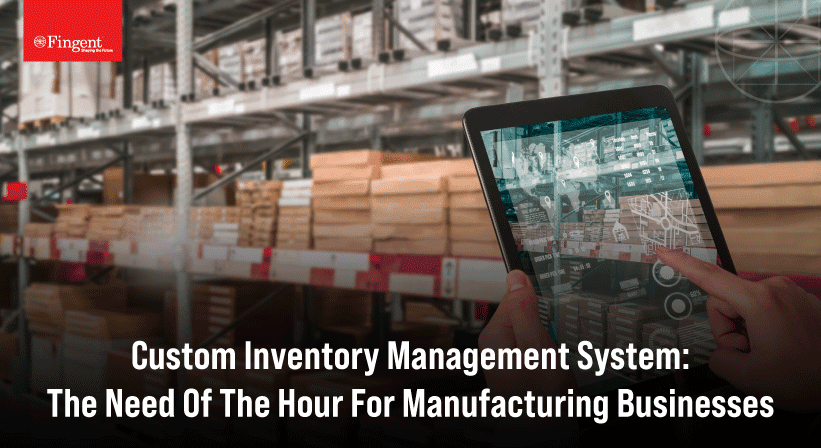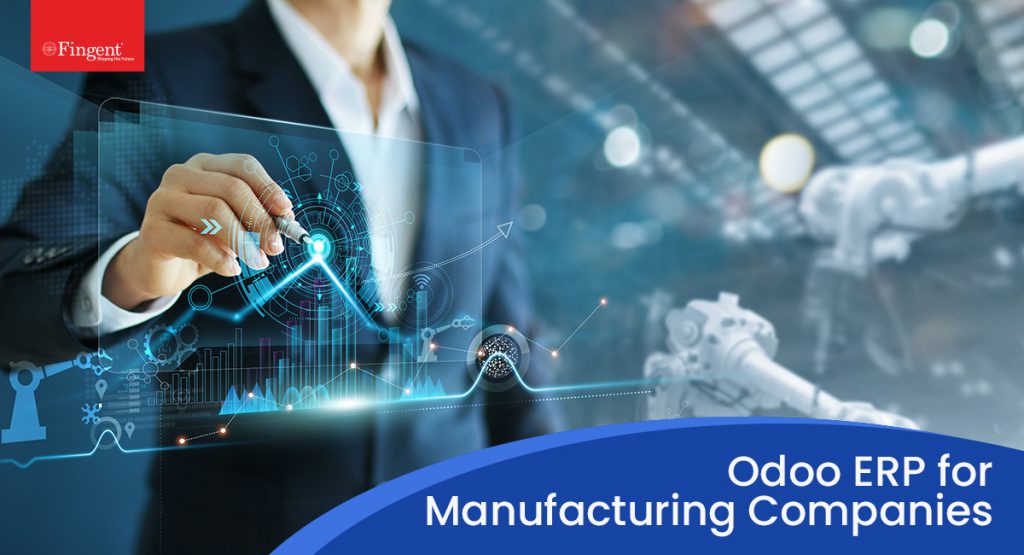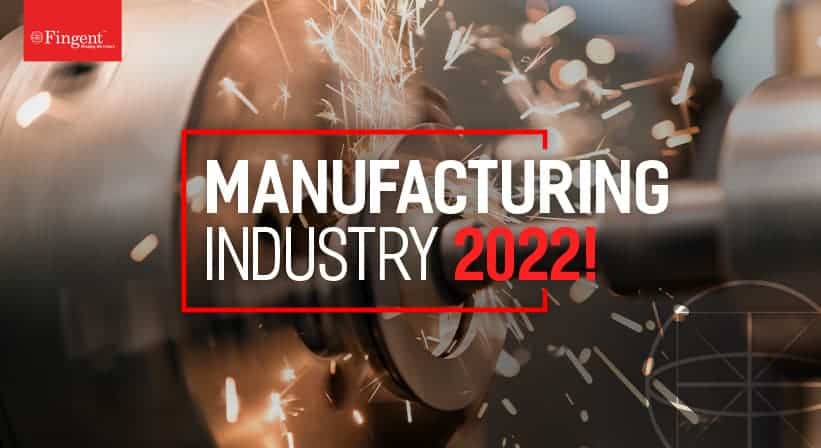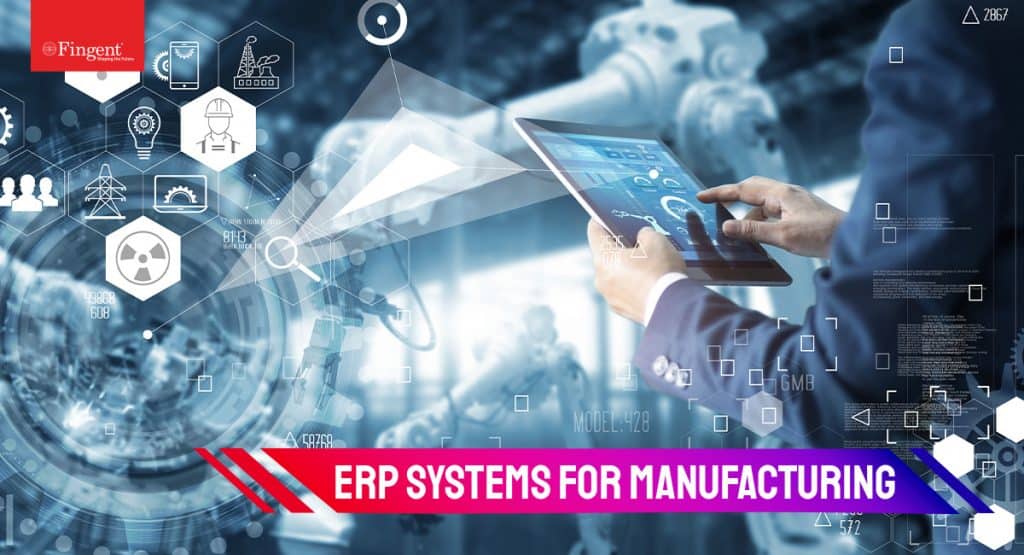Smart Factory: How Is It Impacting The Manufacturing Industry?
Warning: in_array() expects parameter 2 to be array, null given in /home/www/fingenttest/public/wp-content/themes/fingent/template-parts/content.php on line 37
Warning: in_array() expects parameter 2 to be array, null given in /home/www/fingenttest/public/wp-content/themes/fingent/template-parts/content.php on line 81
Manufacturing has long been a driver of global prosperity and economic growth. We all see astounding growth as the manufacturing industry evolves and keeps up with changing consumer needs.
This has led industry leaders to shift their focus from traditional to smart factory technology. A smart factory offers many benefits to operators, managers, and executives of companies in this industry. And yet, a few companies hesitate to start their journey the ‘smart way.’ If you are one of those companies, this article will help you with details and show you how a smart factory can bring its business operations and customer satisfaction to a new level.
Let us begin by understanding what a smart factory is.
What Is a Smart Factory?
Take a manufacturing facility and completely digitize it – that is what a smart factory is. The smart factory is a digitized manufacturing facility that uses digitized manufacturing methods, devices, and systems to continuously collect and share data. This data is used to make informed decisions that improve processes and address manufacturing challenges. The smart factory is a new industrial revolution phase focusing on real-time data, connectivity, automation, and Machine Language.
A smart factory uses the best digital and physical worlds to monitor the entire production line, from supply chain management to manufacturing tools. It can even monitor the work of an individual operator on the factory floor.
Why Is It Smart to Embrace the Smart Factory Movement?
According to a press release by Marketsandmarket, the smart manufacturing market was projected to reach USD 228.2 billion by 2027. It is expected to grow at a CAGR of 18.5% from 2022 to 2027. Then, most businesses consider smart factories highly beneficial and crucial across industries and sectors. Here are some of those significant benefits:
- Measure key performance indicators: A smart factory provides managers with automated data that is accurate. This data gives them the ability to measure key performance indicators more efficiently.
- Think ahead better and faster: Smarter predictive maintenance allows managers to predict and resolve maintenance issues better and faster.
- Efficient demand management: It can forecast more accurately and thus reduce waste enabling efficient demand management.
- Boosted productivity: Managers boost productivity as it can provide seamless data on machine maintenance and potential bottlenecks.
Key Elements of a Smart Factory
There are a few elements that make the smart factory what it is. Understanding these elements will help you see how it fits into your business.
1. Robotics
Robotics is a crucial element of a smart factory. Robotics enables smart material handling and adaptive operations. Besides, robots come with flexible infrastructure that can scale depending on business needs.
2. Big data and IoT
The Smart factory provides augmented access to large amounts of data obtained through the cloud and connected devices. This can empower manufacturers to identify patterns and insights, thus enabling them to make more informed decisions to optimize operations and improve productivity in the long run.
3. Cloud-based management
Cloud-based management includes a suite of professional software architecture that can be developed to empower highly efficient business operations. This can offer market reactivity and scalability. It can also provide real-time visibility into a business’s inventory and manage supply chain operations from the manufacturing to the end customer.
4. Virtual reality
Manufacturers have been using virtual reality for some time now. It uses computer-generated visuals that help improve the experience of the user. It trains engineers to handle complex virtual processes, maintenance systems, and troubleshooting.
5. Cybersecurity
Smart factories tend to increase cyber security threats. Thankfully, smart factory technologies are equipped to streamline cyber threats. For example, AI-powered bots act as guards 24/7, ensuring data security.
6. Additive manufacturing
Additive manufacturing is used for rapid prototyping, on-site manufacturing, and more. It saves time and costs spent on production and tool replacements. Quick reproduction, reconfiguration, and validation can also enable reverse engineering.
Read more: ERP Systems for Manufacturing: How it Improves Business Process
A Look into The Future of Smart Factories
Manufacturers that leverage smart factory technologies will unlock game-changing flexibility and agility. Emerging imperatives for the manufacturing industry include supply chain resilience, enhanced productivity, flexibility, and sustainability. In simple terms, only those manufacturing systems that enable a demand-driven and dynamically optimized value chain will survive and thrive.
1. Increasing demands
In the coming years, factories will face more stringent regulatory and compliance requirements ever. Such demands also merge with global trends toward adopting digitization. Given their ability to drive exponential productivity and sustainability benefits, digital technologies are at the heart of these changes.
2. Automation and beyond
Across the world, manufacturers began their digital transformation with automation to minimize manual operations and maximize output. But technological advances are enabling manufacturers to empower operators to understand operational data. Furthermore, newer platforms and integration technologies are driving down the cost of digital transformation.
3. Transformational gains
By implementing an integrated automation system, manufacturers can accelerate their sustainable manufacturing vision. Driven by the unrelenting need for agility and resilience, manufacturers can empower their workforce by adopting smart factories. By building future smart factories, they can unlock value benefits for all stakeholders along the way.
Creating a Smarter Future for Manufacturing with Fingent!
A smart factory is a direct way for manufacturers to excel in a competitive and dynamic marketplace. Partnering with the right app development company could mean make or break for you. Manufacturers need the right partner to help them implement solutions correctly. Fingent has been a consulting partner to several manufacturing companies and proved its mettle. Have a look at our Case Studies:
With the right partner, upgrading a traditional factory to a smart factory is much simpler than most imagine. Fingent builds custom solutions to integrate factories with smart solutions. Through our experience, we have already helped many businesses transform their traditional factories into smart factories.
Our experts at Fingent can help retrofit most existing manufacturing equipment and set up a centralized hub that can receive data from all the sensors. A cloud service could be set up to monitor and analyze from offsite. What is more, these solutions are upgradeable.
This allows established factories to upgrade at their own pace while keeping the upgrade cost low. Do you have a traditional factory that needs to become smart? Contact Fingent today!
Stay up to date on what's new

Recommended Posts

22 Nov 2023 B2B
Custom Inventory Management System: The Need Of The Hour For Manufacturing Businesses
In the competitive manufacturing world, being average won't secure a win. Businesses need technology to outperform competitors, reduce costs, and build a stellar reputation that echoes through the manufacturing jungle.……

25 Mar 2022 Manufacturing
Cobots and The Future of Manufacturing: A Quick Glimpse!
The COVID-19 pandemic has accentuated the need for resilient supply chains and human-machine collaboration at work. Full or partial shutdowns, as well as social distancing regulations, impose factories and workspaces……

07 Jan 2022 Manufacturing
A Look Into The Future Of Manufacturing Industry: The Challenges, The Opportunities, and The Technologies That Will Help Revolutionize
As the world deals with the short and long-term effects of Coronavirus, the manufacturing industry has suffered significant challenges during 2021. This knock-on effect is likely to be felt into……

26 Aug 2021
6 Ways Odoo ERP Can Benefit Manufacturing Companies
Why Should Manufacturing Companies Leverage Odoo ERP? As the manufacturing industry flourish, the need for a centralized control mechanism to ensure streamlined and effective operations is turning imperative. Processes like……
Featured Blogs
Stay up to date on
what's new

















 US
US Insurance
Insurance









































